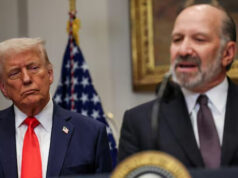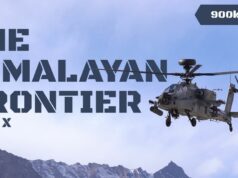NEW DELHI: No mention of returning to the status quo ante in the India-China joint statement is “problematic” because it “leaves India with very few options and the military one is a very real one,” says academic and author Dr Ayesha Ray about the outcome of the meeting between External Affairs Ministers Dr S. Jaishankar and Wang Yi in Moscow. “Saying you’re disengaging is not enough” unless China answers the question of whether it agrees to go back to the pre-April ground situation. If not, the Associate Professor of Political Science at King’s College, Pennsylvania, added that “we’re going to be stuck in a situation with repeated confrontations or skirmishes.” India needs to send the Chinese leadership “coherent and consistent messages,” the author of ‘The Soldier and the State in India: Nuclear Weapons, Counterinsurgency, and the Transformation of Indian Civil-Military Relations’ said.
Speaking to StratNews Global Associate Editor Amitabh P. Revi, Dr Ray pointed out that “India must maintain its bargaining leverage gained from the latest tactical military occupation” but be prepared for a “prolonged cat and mouse game” since Beijing is showing “no intent of pulling its forces back.” She also warned of China “trying to pull a surprise” militarily by “retaliating in a different sector,” making it “imperative for India’s leadership and forces not to fall asleep on the table”.
The 'Eye' of the story not the 'I' of the story. That's Amitabh Pashupati Revi's credo from the beginning of his professional journey in 1995. From conflicts in the war zones of Afghanistan, Syria, and Iraq to nuances of international politics in the Maldives,Thailand, and South Sudan, Amitabh has reported from all the world's continents, except for Antarctica(so far). Though, he has documented the world's third pole, the Siachen Glacier!
Amitabh reports and produces documentaries on the two-front China-Pakistan threat to India. His ground reports from Arunachal Pradesh and Ladakh have received viewership in the hundreds of thousands. Amitabh has interviewed world leaders, top global analysts, and experts in India, Russia, the United States, and Australia as well. Along the way, he’s picked up the Russian language, the Ramnath Goenka Award for his reporting on the 'Islamic State' terrorist group in Iraq, the Khaled Alkhateb Award for his reporting from Palmyra, Syria, and the UN Dag Hammarskjöld Distinguished Journalist Fellowship. Last but not least, as a founder member of StratNews Global, Amitabh helps lead the reporting, editorial, production, and administration teams at StratNews Global, BharatShakti, and InterStellar on their journey ahead.




